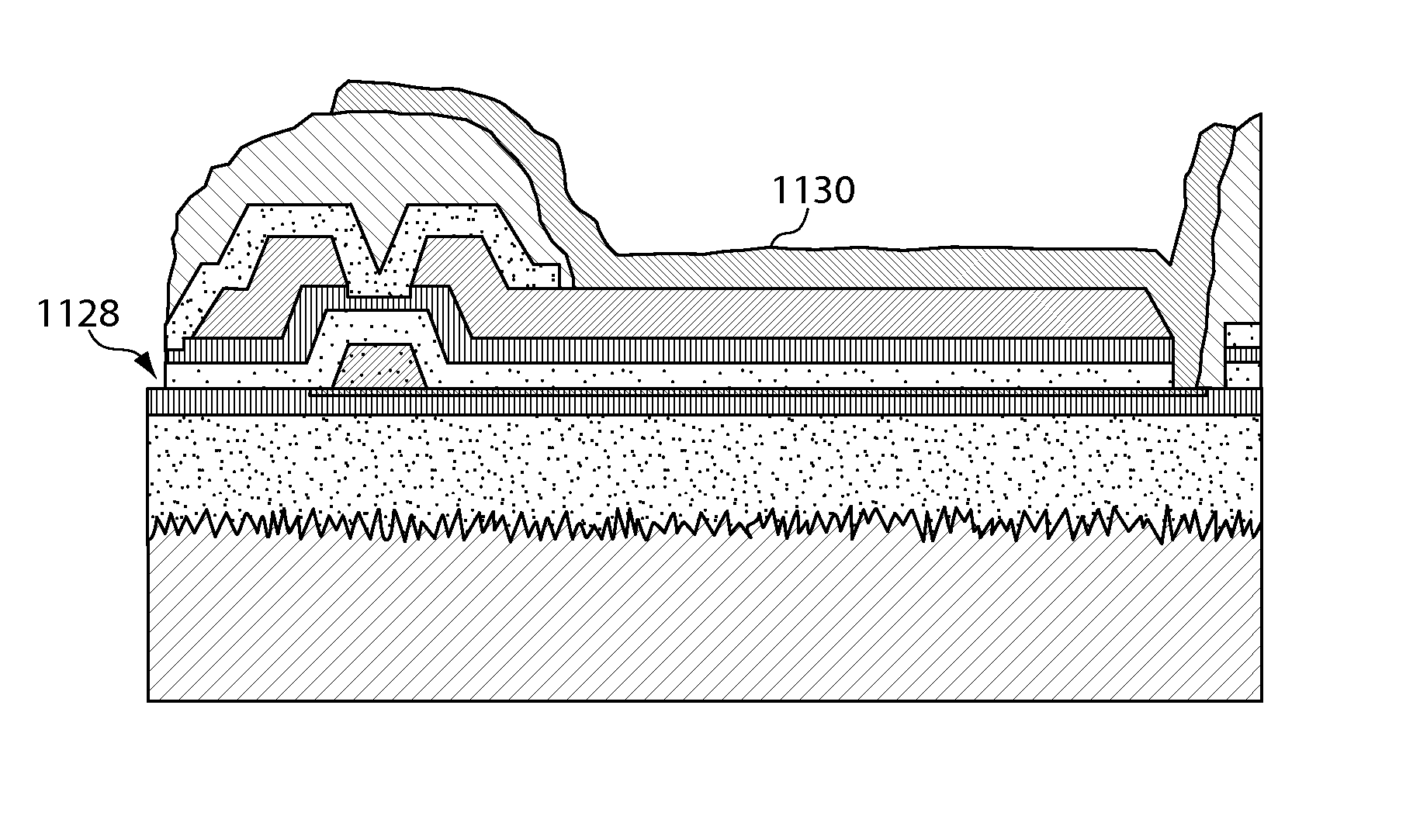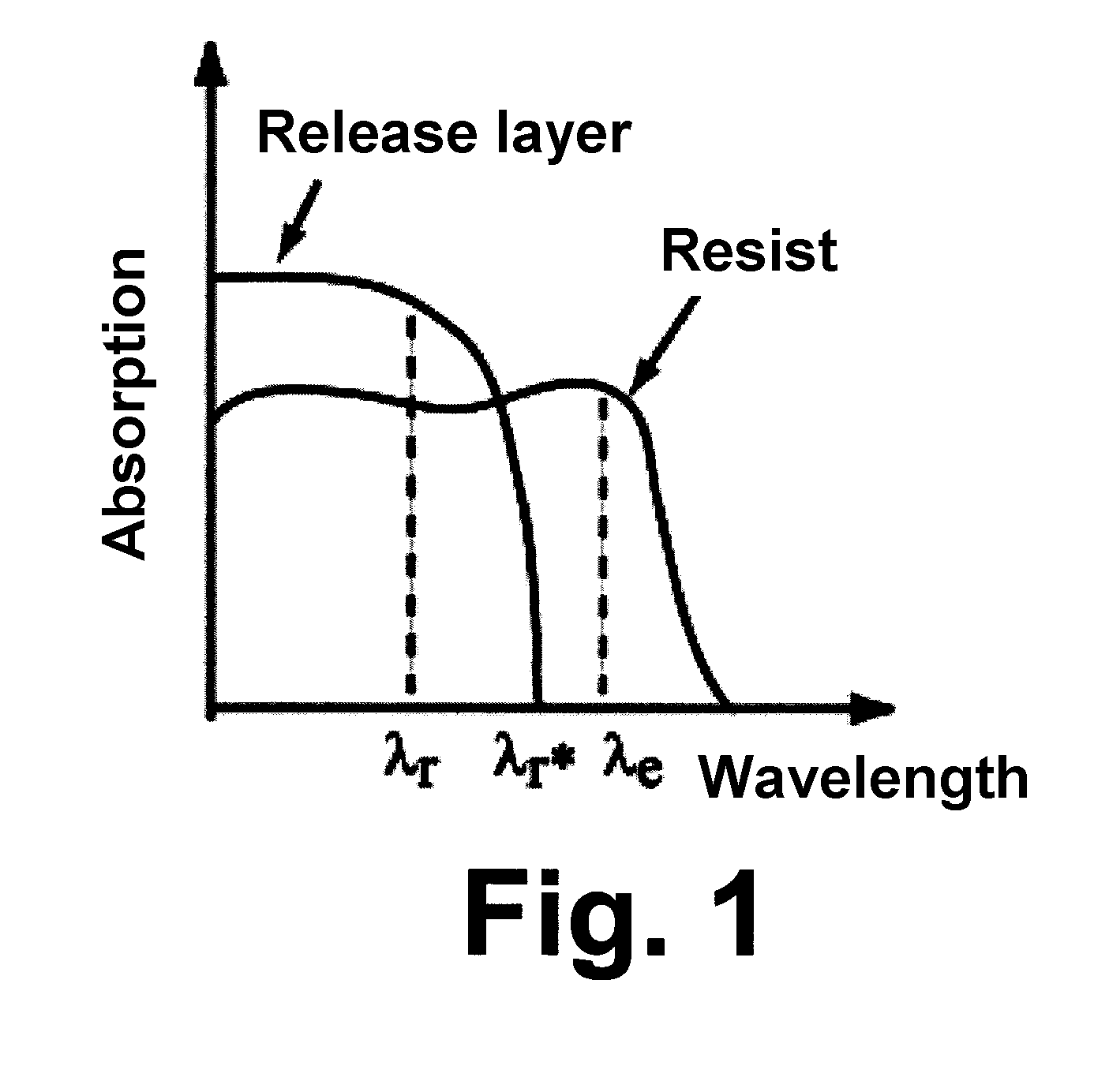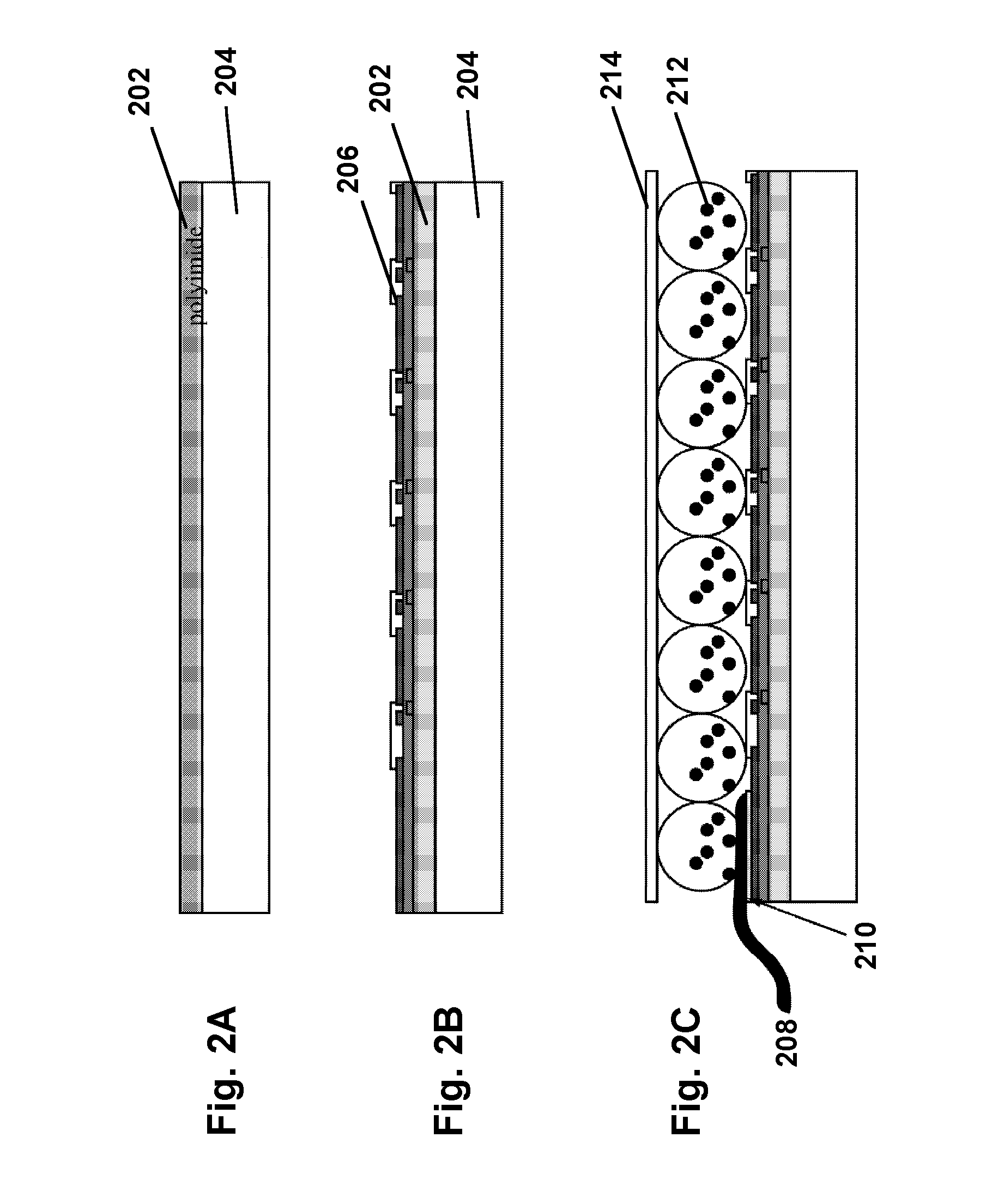Processes for forming backplanes for electro-optic displays
a backplane and electrooptic technology, applied in the field of electrooptic (electronic) display backplane forming process, can solve the problems of not being bistable, preventing widespread use of these displays, and operating in a transmissive mod
- Summary
- Abstract
- Description
- Claims
- Application Information
AI Technical Summary
Benefits of technology
Problems solved by technology
Method used
Image
Examples
Embodiment Construction
[0063] In the following detailed description, rigid carrier processes of the invention will first be described with reference to FIGS. 1-10B. Next, processes for the formation of transistors by processes of the invention will be described with reference to FIGS. 11-17. Processes of the invention for the formation of diodes and diode arrays will then be described with reference to FIGS. 18A-21. Finally, methods of the present invention for driving electro-optic displays will be described.
[0064] Rigid Carrier Processes
[0065] As already mentioned this invention provides a rigid carrier process for forming a non-linear element, which may be a diode or a transistor, on a flexible substrate. The flexible substrate is secured to a substantially rigid carrier, at least one non-linear element is formed on the flexible substrate, and then the flexible substrate and the at least one non-linear element are separated from the substantially rigid carrier.
[0066] In the rigid carrier process of ...
PUM
 Login to View More
Login to View More Abstract
Description
Claims
Application Information
 Login to View More
Login to View More - R&D
- Intellectual Property
- Life Sciences
- Materials
- Tech Scout
- Unparalleled Data Quality
- Higher Quality Content
- 60% Fewer Hallucinations
Browse by: Latest US Patents, China's latest patents, Technical Efficacy Thesaurus, Application Domain, Technology Topic, Popular Technical Reports.
© 2025 PatSnap. All rights reserved.Legal|Privacy policy|Modern Slavery Act Transparency Statement|Sitemap|About US| Contact US: help@patsnap.com



